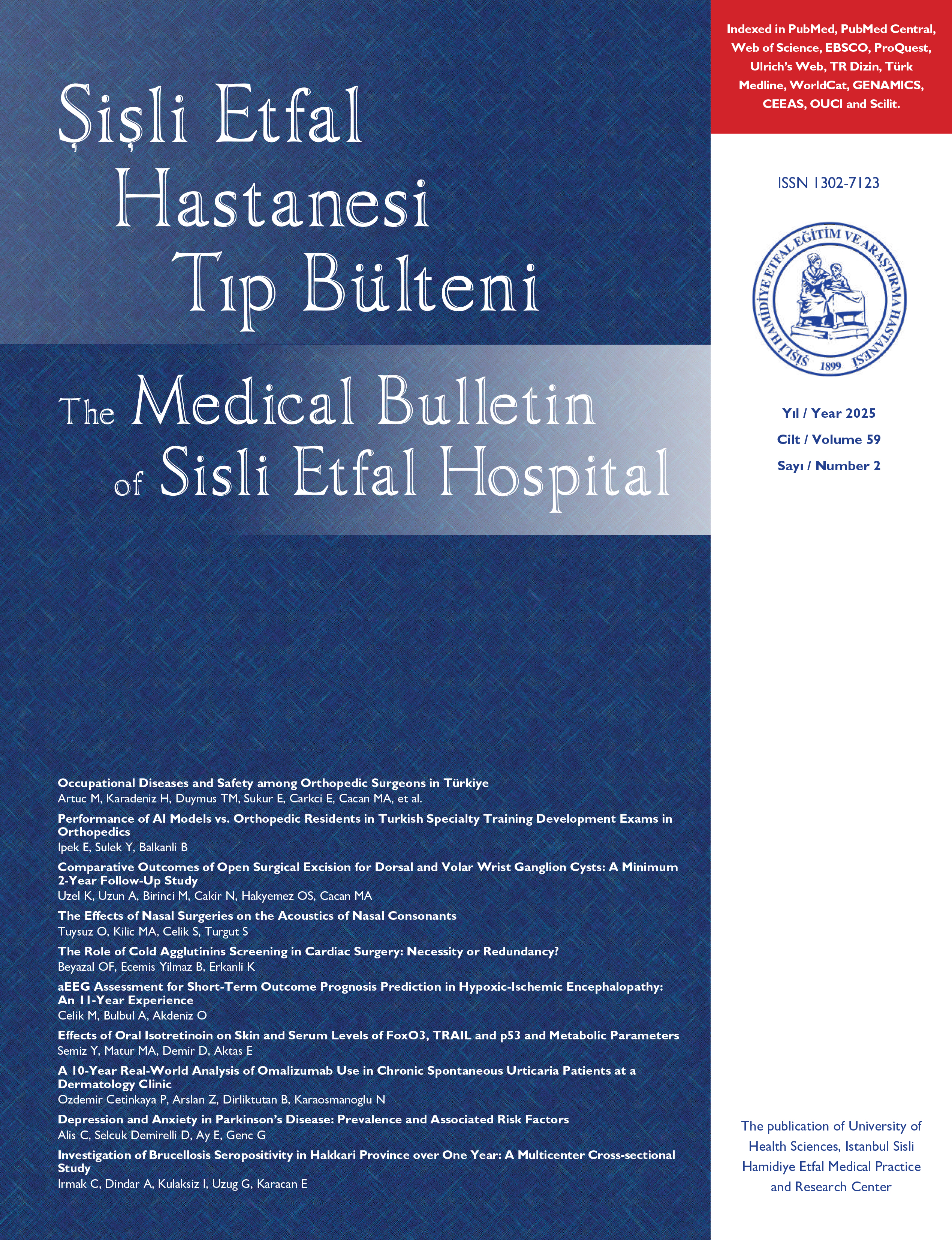
Bakteriyel Enfeksiyonlarda İmmunglobulin Profili
Mustafa Yıldız1, Ayşen Kutan2, Hülya Tanes Açıkel2, Bülent Öztürk2, Ebru Em2, Sema Karul2, Yüksel Altuntaş21Trakya Üniversitesi, Tıp Fakültesi, Kardioloji Anabilim Dalı, Edirne2Şişli Etfal Eğitim ve Araştırma Hastanesi, 2. ve 3. İç Hastalıkları Kliniği, İstanbul
Amaç: Çalışmamız, çeşitli enfeksiyonlarda ekstrasellüler bakterilere karşı gelişen immun yanıtta humoral savunmanın profilini belirlemeyi amaçlamıştır.
Materyal ve Metod: Çalışmamızda ekstrasellüler bakteri ile enfekte 50 olguda humoral immunitenin pratikteki değerlendirilmesi, plazmada IgG, IgM ve IgA parametrelerinin saptanması yoluyla yapılmıştır.
Bulgular: Solunum sistemi enfeksiyonu olan 19 vakanın 3ünde (%15,7) IgG düzeylerinde düşüklük olduğu tesbit edildi. Geri kalan vakaların 3ünde IgG ile birlikte IgA da düşüktü. Genitoüriner sistem enfeksiyonu olan 21 vakanın 8inde (%38) IgA düzeylerinde yükseklik olduğu tesbit edildi. Bu 21 vakanın 2sinde (%9,52) kombine immunglobulin (IgA- IgG, IgA- IgM) yüksekliği mevcuttu.
Sonuç: Çalışmamızda solunum ve genitoüriner sistemin bakteriyel enfeksiyonlarında immunglobulin profilinde IgG düzeylerinin düşük olduğu tesbit edildi. IgG defisitinin enfeksiyonun kronikleşmesi ile korelasyonu saptandı. Üriner sistem enfeksiyonu olan olgularda ise, literatürde verilen değerlerin aksine, IgAnın yükselen profili tesbit edildi.
The immunglobulin Profile In Bacterial Infections
Mustafa Yıldız1, Ayşen Kutan2, Hülya Tanes Açıkel2, Bülent Öztürk2, Ebru Em2, Sema Karul2, Yüksel Altuntaş21Department of Cardiology, Faculty of Medicine, Trakya University, Edirne, Turkey2Second and Third Department of Internal Diseases, Şişli Etfal Training and Research Hospital, Istanbul, Turkey
Objective: Our study aimed to detect the quantitative profile of humoral defence in immune response developed against exracellular bacteria in various infections.
Study Design: In a group of 50 subject infected with exracellular bacteria, the quantitative evaluation of humoral immunity in practice, is carried out by detection of IgG, IgM, IgA parameters in plasma.
Results: 3 out of 19 subjects having respiratory system infection (%15,7) are found to have a significant deficit in IgG levels. The 3 out of the rest subjects having IgG deficit are also found to have IgA deficit. 8 out of 21 patients having genitourinary system infection (%38) are found to have an increase in IgA levels. 2 out of 21 subjects are also found to have a combined immunoglobulin increase (IgA- IgG, IgA- IgM).
Conclusion: In our study, the immunoglobulin profile of subjects with bacterial infection of respiratory and genitourinary system showed a significant deficit in IgG levels. We also found that there is a correlation between the decrease in IgG levels and the duration of the infection. In subjects having urinary system infection, in contrast to the results given in varies previous studies, we found a significant increase in IgA levels compared to subjects in control group.
Makale Dili: Türkçe



















